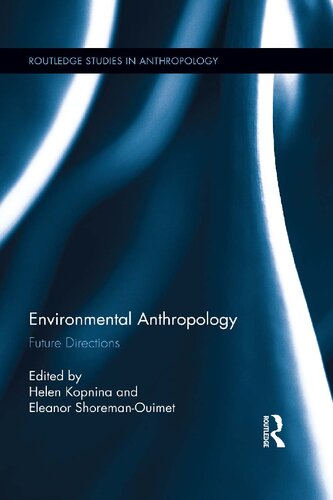

Most ebook files are in PDF format, so you can easily read them using various software such as Foxit Reader or directly on the Google Chrome browser.
Some ebook files are released by publishers in other formats such as .awz, .mobi, .epub, .fb2, etc. You may need to install specific software to read these formats on mobile/PC, such as Calibre.
Please read the tutorial at this link: https://ebookbell.com/faq
We offer FREE conversion to the popular formats you request; however, this may take some time. Therefore, right after payment, please email us, and we will try to provide the service as quickly as possible.
For some exceptional file formats or broken links (if any), please refrain from opening any disputes. Instead, email us first, and we will try to assist within a maximum of 6 hours.
EbookBell Team

4.8
64 reviewsThis volume presents new theoretical approaches, methodologies, subject pools, and topics in the field of environmental anthropology. Environmental anthropologists are increasingly focusing on self-reflection - not just on themselves and their impacts on environmental research, but also on the reflexive qualities of their subjects, and the extent to which these individuals are questioning their own environmental behavior. Here, contributors confront the very notion of "natural resources" in granting non-human species their subjectivity and arguing for deeper understanding of "nature," and "wilderness" beyond the label of "ecosystem services." By engaging in interdisciplinary efforts, these anthropologists present new ways for their colleagues, subjects, peers and communities to understand the causes of, and alternatives to environmental destruction. This book demonstrates that environmental anthropology has moved beyond the construction of rural, small group theory, entering into a mode of solution-based methodologies and interdisciplinary theories for understanding human-environmental interactions. It is focused on post-rural existence, health and environmental risk assessment, on the realm of alternative actions, and emphasizes the necessary steps towards preventing environmental crisis.